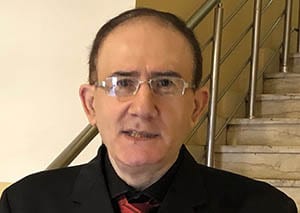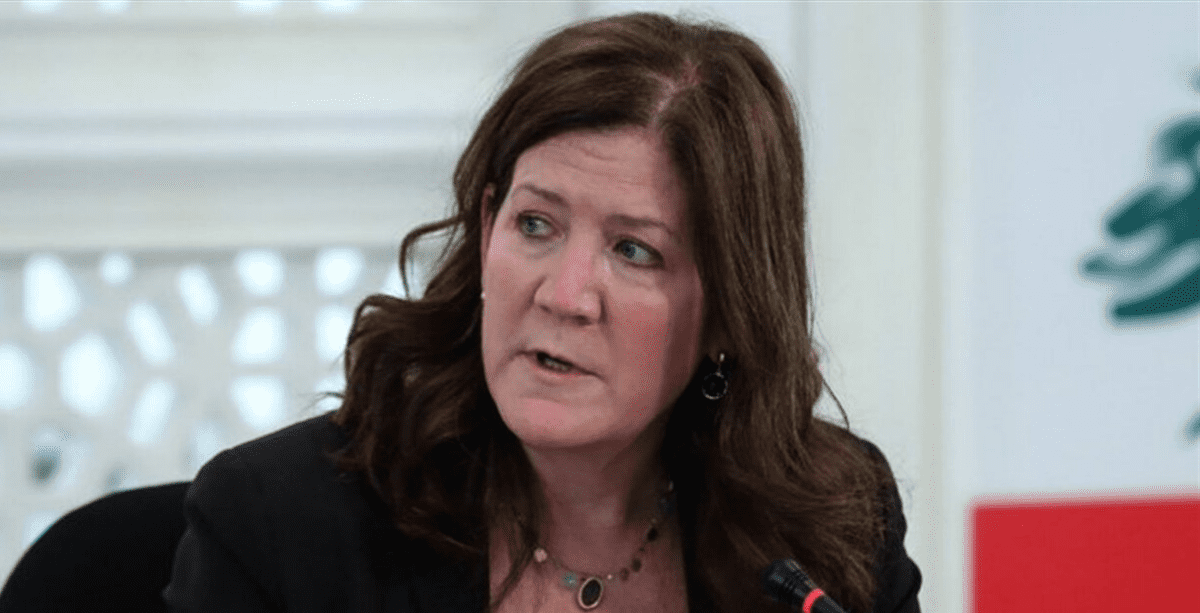The incident around the US Ambassador to Lebanon and judge Mohammad Mazeh has sparked a storm of controversy, making the news locally and internationally.
Judge Mazeh issued a decision against US Ambassador Dorothy Shea on the background of her recent interview with Al-Hadath TV, during which she responded to accusations by Hezbollah’s Secretary-General that Lebanon’s financial crisis is a plot by the United States.
She described the party as “a designated terrorist organization” and stated that her country has “grave concerns” about its role.
“It has siphoned off billions of dollars that should have gone into government coffers so that the government can provide basic services to its people,” she said, adding that “it has obstructed some of the economic reforms the Lebanese economy so desperately needs.”
Based on her statements, which judge Mazeh deemed “inciting” and “offensive to some Lebanese people,” he issued a ruling banning media outlets, local and foreign media working in Lebanon, from airing or publishing her comments.
In order for his decision to take effect, however, “it must be adopted by the Ministry of Information,” Judge Mazeh told The Washington Post.

From her side, Information Minister Manal Abdel-Samad responded to the announcement of the judge’s decision, stating that “no one has the right to ban media from carrying news or limit its media freedom.”
To note, Al-Hadath TV is not a Lebanese media platform. It is owned by the Saudi news media Al-Arabia and is based in Dubai, UAE.
After her first response to the decision via MTV Lebanon, Ambassador Shea expressed via LBC Lebanon that the backlash she received was surprising, especially because “there was nothing new” in what she had stated.

Speaking of the judge’s decision, she said that she received “assurances from the Lebanese government” in regard to this “inappropriate judgment.”
“Trying to use an active judge or court decision to silence the media and to silence me, and to deny the Lebanese people freedom of expression and freedom of the media is ridiculous,” the ambassador added.
However, despite her statement indicating that she has the Lebanese government on her side, she is now being summoned by the Lebanese Minister of Foreign Affairs, Nassif Hitti for a meeting on Monday at 3:00 pm.

The state-run National News Agency (NNA) reported that Minister Hitti intends to raise the matter of the Vienna Convention on the Law of Treaties.
That law specifies that “an ambassador has no right to interfere in the internal affairs of another country and should not incite the [Lebanese] people against one another.”
That stance was openly reflected by President Aoun on Sunday during an interview with Al-Mayadeen.
“The Americans are directly interfering in the Lebanese domestic affairs; and this is unacceptable,” he said. The president went on to emphasize that Hezbollah “represents the Lebanese society and enjoys popularity among people,” reported AFP.
According to the same source, Lebanon’s president “cautioned the US envoy over making more caustic remarks against the Lebanese resistance movement Hezbollah.”

